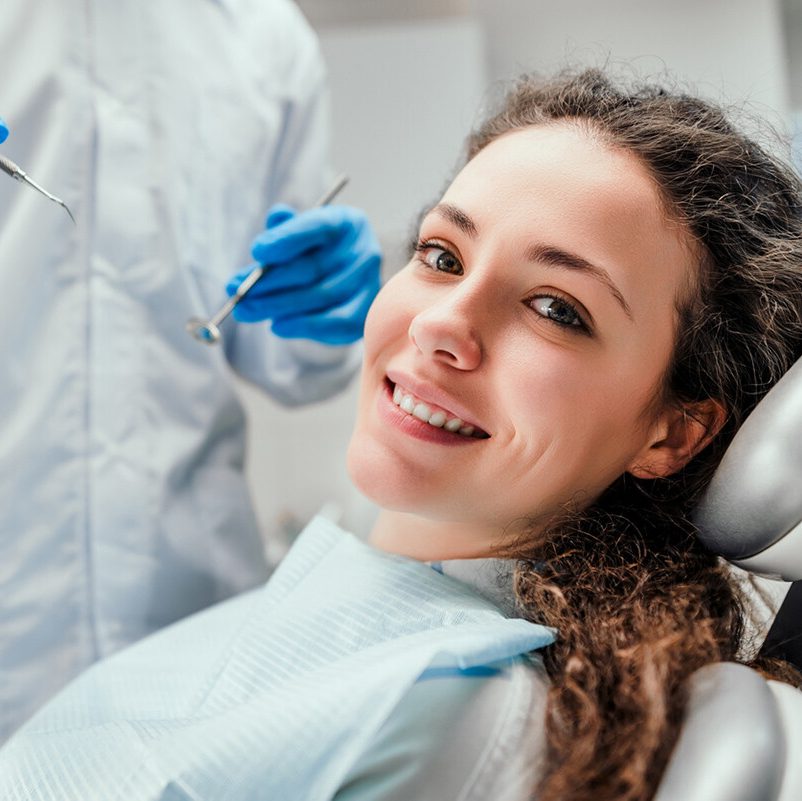At The Dental Anesthesia Center, we can help you overcome dental phobia and anxiety. Contact us today to schedule.
For many St. Louis residents, the mere thought of sitting in a dental chair can trigger overwhelming anxiety. The sounds of dental equipment, the clinical smells, and the anticipation of potential discomfort can transform a routine dental visit into a genuinely distressing experience.
But what if you could receive comprehensive dental care while essentially “sleeping” through the entire procedure? Sleep dentistry, also known as sedation dentistry, offers precisely this possibility, and it may be the solution you’ve been searching for.

Understanding Dental Anxiety and Phobia
Before exploring how sleep dentistry can help, it’s important to understand that dental anxiety exists on a spectrum:
- Mild dental anxiety: Feelings of nervousness or unease before or during dental appointments
- Moderate dental anxiety: Physical symptoms like elevated heart rate, sweating, or difficulty sleeping the night before an appointment
- Severe dental anxiety or dental phobia: Overwhelming fear that prevents individuals from seeking necessary dental care, often for years or even decades
For those with severe dental anxiety or phobia, the consequences can be serious. Avoiding professional dental care often leads to deteriorating oral health, which may ultimately require more invasive and complex treatments, creating a vicious cycle of greater fear and worsening dental problems.
What Exactly Is Sleep Dentistry?
Sleep dentistry uses medication to help patients relax during dental procedures. Despite its name, you’re not actually asleep during most forms of dental sedation, except for general anesthesia. However, many patients report feeling as though they were sleeping, with little to no memory of the procedure afterward.
At The Dental Anesthesia Center in St. Louis, we offer several levels of sedation:
1. Nitrous Oxide/Laughing Gas
- You remain awake but relaxed
- Effects wear off quickly after the procedure
- You can typically drive yourself home afterward
2. Moderate Sedation
- You remain conscious but may slur words and have limited memory of the procedure
- Administered through oral medication taken before your appointment
- You’ll need someone to drive you home
3. IV Sedation
- You’re on the edge of consciousness but can still be awakened
- Administered intravenously for more precise control
- You’ll have little to no memory of the procedure
- Transportation home by a companion is required
4. General Anesthesia
- You’re completely unconscious
- Typically reserved for extensive procedures or patients with special needs
- Administered and monitored by qualified anesthesia professionals
- Recovery monitoring and transportation home are required
Who Can Benefit from Sleep Dentistry?
Sleep dentistry is particularly beneficial for:
- Individuals with dental phobia or severe anxiety: For those whose fear prevents them from seeking essential care
- Patients with a strong gag reflex: Sedation helps suppress this natural reflex during treatment
- People with special needs: Including cognitive or physical disabilities that make traditional dental visits challenging
- Patients requiring extensive dental work: Multiple procedures can often be completed in a single visit while under sedation
- Those with extreme sensitivity: Patients with very sensitive teeth, gums, or low pain thresholds
- Individuals with difficulty sitting still: Including children or adults with certain medical conditions
The Benefits of Sleep Dentistry
1. Elimination of Anxiety and Fear
Perhaps the most obvious benefit is the removal of fear from the equation. Many patients who have postponed dental care for years find that sleep dentistry allows them to address their oral health needs without psychological distress for the first time.
2. More Efficient and Comprehensive Treatment
When patients are sedated, dentists can often work more efficiently and perform multiple procedures in a single visit. What might have required 4-5 appointments can sometimes be accomplished in just one or two sessions.
3. Little to No Memory of the Procedure
For those with dental phobia, one of the most appealing aspects of sleep dentistry is the amnesia effect. Many patients have no recollection of the sounds, smells, or sensations associated with their dental treatment—only the results.

4. Reduced Physical Discomfort
Sedation not only addresses psychological concerns but can also minimize physical discomfort during longer procedures. This is particularly valuable for patients with conditions that make sitting in a dental chair for extended periods painful.
5. Breaking the Cycle of Dental Avoidance
Perhaps most importantly, sleep dentistry can break the cycle of dental avoidance. After positive experiences with sedation, many patients gradually become more comfortable with routine dental care—some eventually transitioning to traditional dental visits with little or no sedation.
Is Sleep Dentistry Safe?
When administered by qualified professionals, dental sedation is extremely safe. At The Dental Anesthesia Center, our team includes specialists with advanced training in anesthesia and sedation techniques. Before recommending any form of sedation, we conduct a thorough review of your medical history and may consult with your primary care provider if necessary.
While all medical procedures carry some risk, the safety protocols we employ include:
- Continuous monitoring of vital signs
- Presence of trained staff throughout the procedure
- Emergency equipment and medications are readily available
- Customized sedation plans based on individual patient needs
- Comprehensive pre- and post-procedure instructions
Is Sleep Dentistry Right for You?
While sleep dentistry offers remarkable benefits for many patients, it’s not necessarily the right choice for everyone. Factors to consider include:
- Your medical history and current medications
- The nature and extent of dental treatment needed
- Your level of dental anxiety
- Personal preferences regarding awareness during procedures
- Insurance coverage and financial considerations
The best way to determine if sleep dentistry is appropriate for your situation is to schedule a consultation with our team at The Dental Anesthesia Center. During this visit, we’ll:
- Discuss your dental history and anxiety triggers
- Review your medical history for any contraindications
- Explain the various sedation options available
- Answer any questions you might have
- Create a personalized treatment plan
Taking the First Step
For many people with dental phobia, simply making that first phone call can be challenging. We understand this and have designed our initial consultation process to be as stress-free as possible. Our patient coordinators are experienced in working with anxious patients and can guide you through the process with empathy and without pressure.
Remember that seeking help for dental phobia isn’t a sign of weakness—it’s a proactive step toward better health. Many of our patients tell us their only regret is not discovering sleep dentistry sooner.
A Path to Dental Wellness Without Fear
Dental phobia shouldn’t stand between you and optimal oral health. Sleep dentistry offers a compassionate, effective solution that has helped countless St. Louis residents overcome their fears and address long-neglected dental issues.
At The Dental Anesthesia Center, we specialize in creating positive dental experiences for patients who are anxious and those with special needs. Our team’s advanced training in sedation techniques, combined with our patient-centered approach, has established us as St. Louis’s premier provider of sleep dentistry services.
If fear has kept you from seeking the dental care you need, we invite you to explore how sleep dentistry might change your relationship with dental treatment—possibly for life.
Contact The Dental Anesthesia Center Today
Ready to learn more? Contact The Dental Anesthesia Center today at (314) 862-7844 to schedule a consultation with our sedation specialists. Your journey toward stress-free dental care begins with a single conversation.

